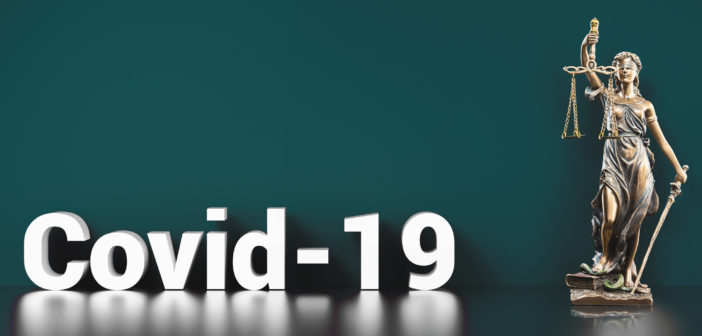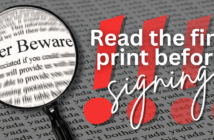by Deepa Subramanian – Ogletree, Deakins, Nash, Smoak & Stewart
Below is a list of 5 FAQ that addresses a variety of COVID-related legal topics. Please keep in mind this is general federal guidance. Many states and localities are issuing executive orders and ordinances that may have different restrictions based on where your hotel is located. The information should not be construed as legal advice and does not create an attorney-client relationship.
May an employer count an employee’s time away from work due to the employee’s own COVID-19 illness against the employee in terms of the employer’s attendance policy?
Yes, as long as the illness is not an FMLA-qualifying serious health condition, in which case the employer should comply with the FMLA’s prohibition on counting these types of absences against an employee. Note that there may be times when complications arising from COVID-19 (or COVID-19’s effects on a preexisting medical condition) could be considered a disability, in which case the ADA may be implicated and a reasonable accommodation may be required.
Are employees of small businesses (i.e., those with fewer than 50 employees) exempt from the Families First Coronavirus Response Act (FFCRA)?
The DOL’s temporary regulations allow for this exemption if an authorized officer of the business has determined that:
- Providing the leave would result in the small business’s expenses and financial obligations exceeding available business revenues and cause the small business to cease operating at a minimal capacity;
- The absence of the employee or employees requesting paid sick leave or expanded family and medical leave would entail a substantial risk to the financial health or operational capabilities of the small business because of their specialized skills, knowledge of the business, or responsibilities; or
- There are not sufficient workers who are able, willing, and qualified, and who will be available at the time and place needed, to perform the labor or services provided by the employee or employees requesting paid sick leave or expanded family and medical leave, and these labor or services are needed for the small business to operate at a minimal capacity.
Remember, this exception is only for the EFMLEA and EPSLA leave for child care and school closure-related leave.
To elect this small business exemption, the employer must document that a determination has been made pursuant to the above criteria. The employer is not required to send such documentation to the DOL but should retain the records in its files for four years.
What if an employee is furloughed? Does he or she qualify for FFCRA leave?
No. The DOL’s position is that the EPSLA and EFMLEA are designed to cover hours the employee is expected to work. If an employee is not expected to work (because of a layoff, furlough, temporary business closure, or otherwise) the employee is not entitled to leave.
May an employer require an employee with COVID-19 to use his or her vacation time and/or other paid time off for the absence?
Yes, subject to (a) the provisions of the employer’s current vacation time, paid time off (PTO), and other applicable policies, and (b) any state laws (e.g., implied contract of employment) restricting an employer’s ability to interpret or amend those policies. However, employers with fewer than 500 employees should review obligations under the FFCRA.
May an employer disclose an employee’s actual or probable COVID-19 diagnosis to others?
Employers should inform fellow employees of their potential workplace exposure but only to the extent necessary to adequately inform them of their potential workplace exposure, while maintaining confidentiality under the ADA (i.e., without revealing the infected individual’s name unless otherwise directed by the CDC or applicable public health authority).
Employers also may communicate to non-exposed employees and non-employees (e.g., customers) generally that there has been a potential COVID-19 exposure, without sharing additional identifying information.
Employers also should evaluate any applicable state privacy laws or state mini-ADA.
Deepa Subramanian represents employers in all aspects of employment law, including employment litigation and counseling. Subramanian advises and defends clients in federal and state employment-related lawsuits, including actions alleging discrimination, harassment, retaliation, violations of wage and hour law, and breach of contract. In addition, Subramanian provides advice to employers, including hoteliers, concerning litigation avoidance, leaves of absence, employee discipline, hiring and termination issues, reductions in force, and other personnel matters. Subramanian also has experience reviewing and creating employee handbooks and policies, drafting and negotiating employment agreements, severance agreements, covenants not to compete and non-solicitation agreements, in addition to providing training for employers and employees on employment-related issues. Subramanian earned her undergraduate degree at Emory University and her Juris Doctor at Vanderbilt Law School.




